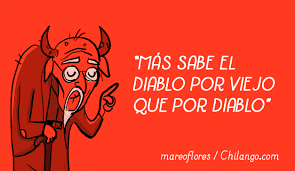Four Articles and a Poem
Weekly, I post four articles that I found significant and a poem. Our
lives are enriched by seeing better. Each week, one article comes from
the world of photography, a discipline that is about seeing. Another
article comes from the world of technology, hence seeing something of
the future. Another article takes up an aspect of our life together,
seeing more clearly the other. Another article refers to faith, seeing
the unseen. Finally, the weekly post concludes with a poem, because
poetry is about seeing words whose arrangement allows us to see anew.
This week, I will forgo the article on photography as I would like to draw our eyes to something else. We have significant choices before us: a deal with Iran, a presidential election, what we will eat today, all with consequences, even if we are oblivious to them. I admit that I am constructing a "straw man" here amid newsmakers of our day, concluding with a familiar poem, while suggesting an unfamiliar interpretation.
"The Road Not Taken"
by Robert Frost
Two roads diverged in a yellow wood,
And sorry I could not travel both
And be one traveler, long I stood
And looked down one as far as I could
To where it bent in the undergrowth;
Then took the other, as just as fair,
And having perhaps the better claim,
Because it was grassy and wanted wear;
Though as for that the passing there
Had worn them really about the same,
And both that morning equally lay
In leaves no step had trodden black.
Oh, I kept the first for another day!
Yet knowing how way leads on to way,
I doubted if I should ever come back.
I shall be telling this with a sigh
Somewhere ages and ages hence:
Two roads diverged in a wood, and I—
I took the one less traveled by,
And that has made all the difference.
This week, I will forgo the article on photography as I would like to draw our eyes to something else. We have significant choices before us: a deal with Iran, a presidential election, what we will eat today, all with consequences, even if we are oblivious to them. I admit that I am constructing a "straw man" here amid newsmakers of our day, concluding with a familiar poem, while suggesting an unfamiliar interpretation.
- Catholics love their celebrity pope and most — not all — of his priorities. Cathy Lynn Grossman of Religious News Service offers this preview of Pope Francis' visit by underscoring the contradiction of the Pope's enormous popularity alongside the rejection of many of his major themes. Over the coming two weeks, I likely will highlight many articles about the Pope's visit, but this much is clear: Pope Francis comes as a pastor, not a politician. If preaching is to "comfort the afflicted and to afflict the comfortable," Pope Francis will make plenty of us uncomfortable in the U.S. We need to hear his words about mercy, but also about creation and the economy and the "throwaway culture," as he terms it.
- Trump Seriously: On the Trail With the GOP's Tough Guy. This Rolling Stone article by Paul Solotaroff is fascinating. I have marveled at Donald Trump's capacity and reach inside the current political campaign. In ways that seem so authentic and natural to who he is, his rhetoric, seemingly unscripted that taps into the angst of a segment of the electorate, his bellicose nature, have confounded his opponents and enamored the media. Solotaroff, after some time with Donald, draws some interesting conclusions about his character and what it says of us.
- Joe Biden and Stephen Colbert: Brothers-in-Grief. Stephen Colbert kicked off his new "Late Show" this week, and his interview of Vice-President Joe Biden was an extraordinary moment of television. Colbert's comfort at talking about issues of faith is a contrast with many journalists. Biden, too, speaking of the rosary and the Eucharist, showed an often unexpressed but implicit spirituality. Among the various reports that followed the interview, I liked The Atlantic.
- Wendell Berry Honored with First Annual American Food & Farming Award. In a previous edition, I shared one of Berry's poems. For more than fifty years, he has been a prophetic voice calling for an agrarian ethic that would transform our farming and food system into a sustainable model that cares for our water and soils, builds our rural communities, transmits a love for agriculture and the land across generations, and celebrates earth's biological diversity.
"The Road Not Taken"
by Robert Frost
Two roads diverged in a yellow wood,
And sorry I could not travel both
And be one traveler, long I stood
And looked down one as far as I could
To where it bent in the undergrowth;
Then took the other, as just as fair,
And having perhaps the better claim,
Because it was grassy and wanted wear;
Though as for that the passing there
Had worn them really about the same,
And both that morning equally lay
In leaves no step had trodden black.
Oh, I kept the first for another day!
Yet knowing how way leads on to way,
I doubted if I should ever come back.
I shall be telling this with a sigh
Somewhere ages and ages hence:
Two roads diverged in a wood, and I—
I took the one less traveled by,
And that has made all the difference.




Comments
Post a Comment